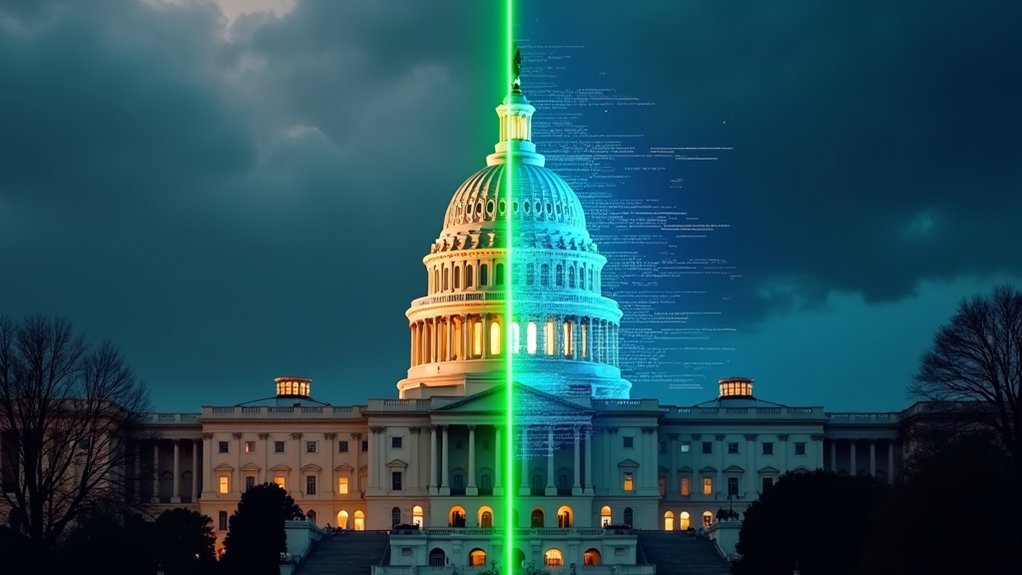Finally, buying a cup of coffee with Bitcoin won’t trigger a tax nightmare. Senator Cynthia Lummis (R-WY) is pushing legislation that would exempt crypto transactions under $300 from capital gains tax. Yes, you read that right – no more calculating microscopic gains on your morning latte.
Say goodbye to tax headaches – small crypto purchases under $300 will finally be exempt from capital gains calculations.
The proposal, introduced in July 2025, sets an annual cap of $5,000 per taxpayer for these exemptions. It’s not just a crypto free-for-all, but it’s a start. The exemption won’t apply to stablecoins or business transactions, though. Sorry, corporate crypto enthusiasts. The bill’s mark-to-market election provides businesses with clearer accounting options.
This isn’t just about coffee. The reform package tackles bigger issues too. Miners and stakers won’t get hit with taxes until they actually sell their rewards. No more paying taxes on assets they haven’t cashed out. Makes sense, right? The new rules aim to establish common-sense tax treatment that better reflects how digital technology actually functions.
The Treasury’s Joint Committee on Taxation estimates these changes will generate $600 million in revenue through 2034. Not bad for making life easier. The peer-to-peer transactions eliminate traditional banking intermediaries, reducing costs for everyday users.
The crypto industry loves it – well, most of it. Some think the $300 threshold is too low. They want higher limits and no annual caps. Classic crypto maximalists, always wanting more. But the legislation mirrors existing rules for foreign currency transactions, so there’s precedent.
Starting in 2026, the exemption threshold will adjust for inflation. Because apparently, even digital currencies need to keep up with old-school economic realities.
The bill also clarifies rules for charitable contributions and securities lending, bringing crypto taxation in line with traditional finance.
The reform is part of a broader push to make cryptocurrency more practical for everyday use. Let’s face it – nobody wants to file a tax form every time they buy a sandwich.
The bill is still working its way through Congress, with public comments rolling in. Will it revolutionize crypto adoption? Maybe not. But at least you won’t need an accountant on speed dial for your Bitcoin purchases anymore.





